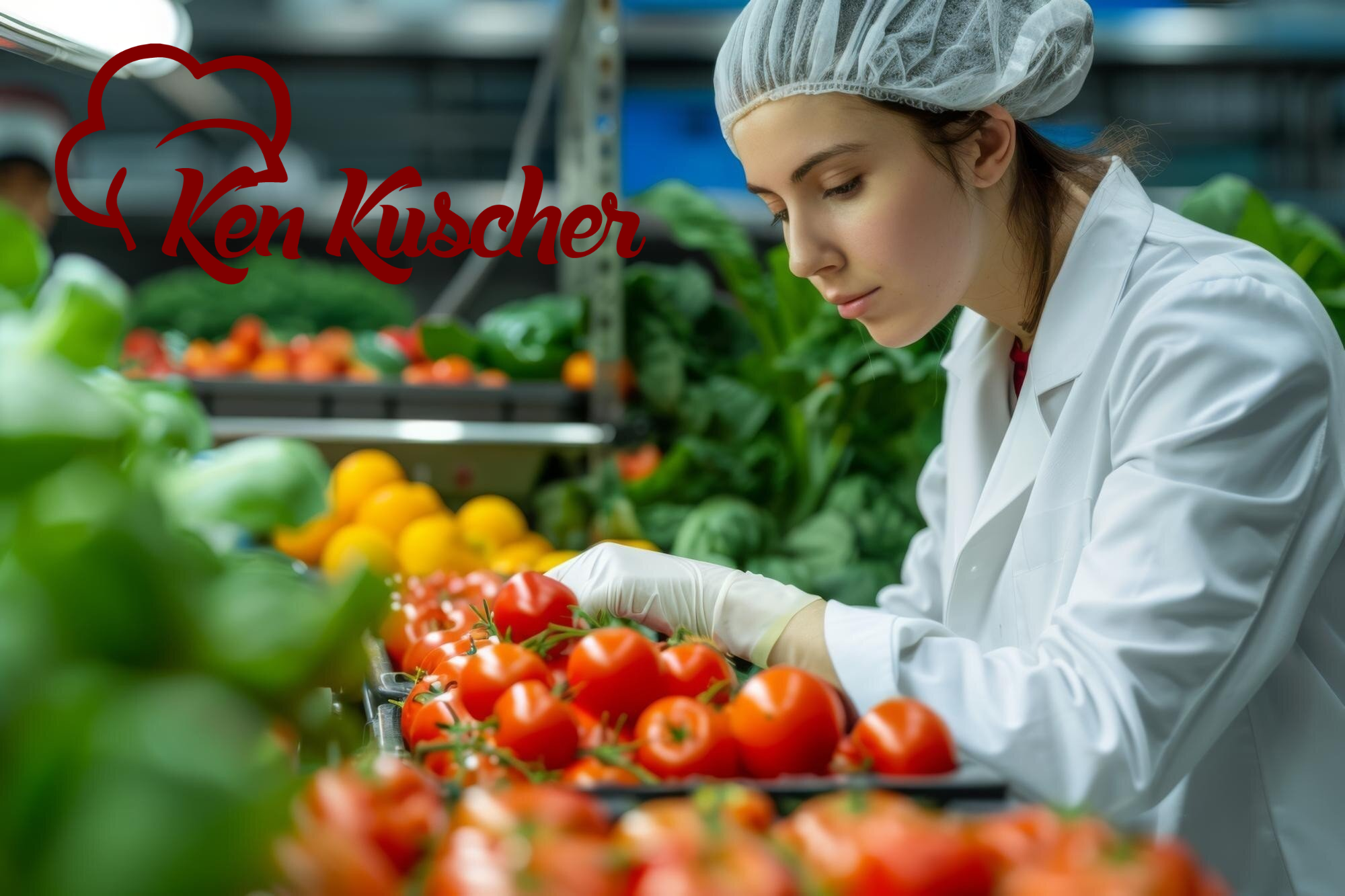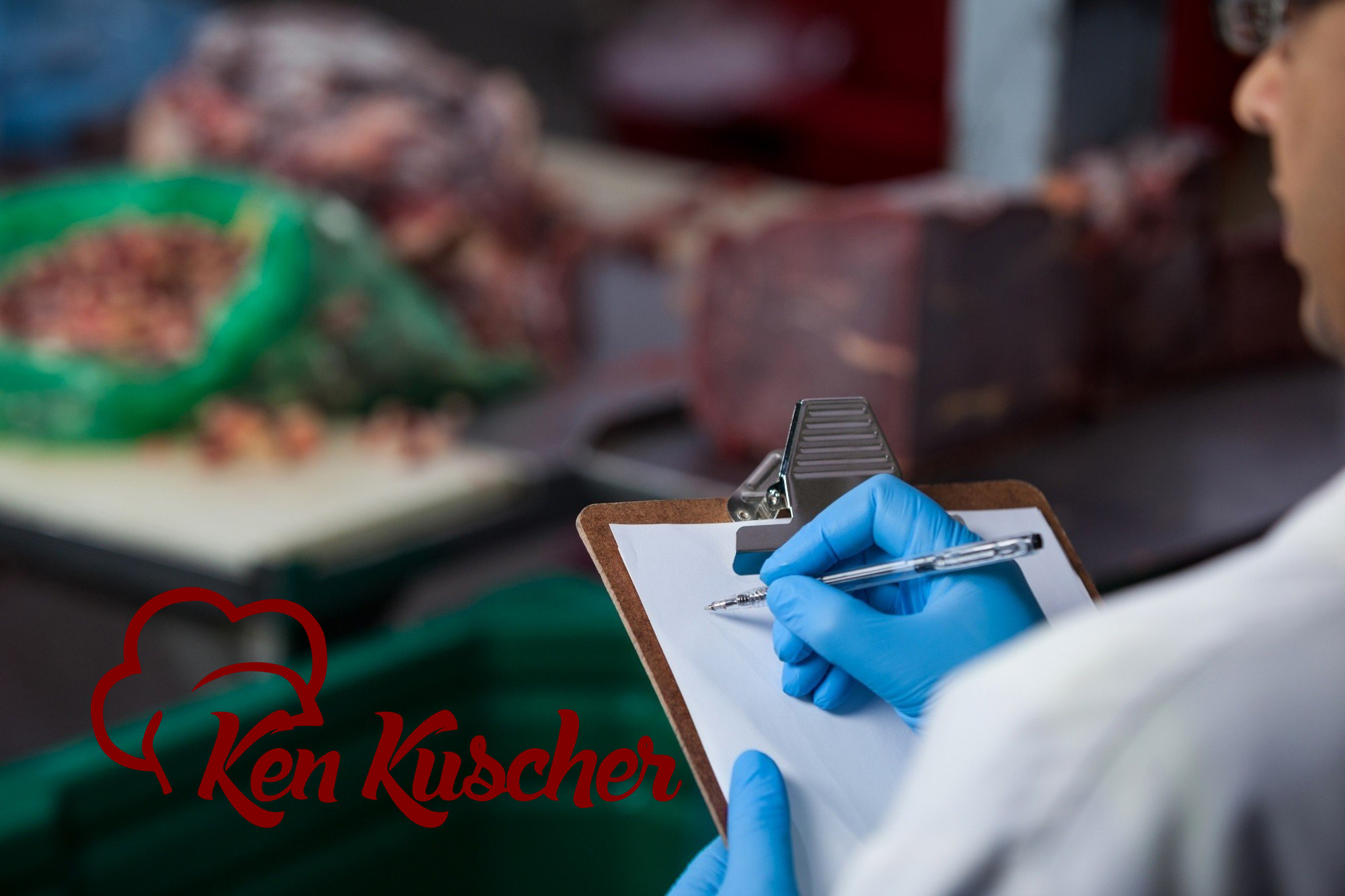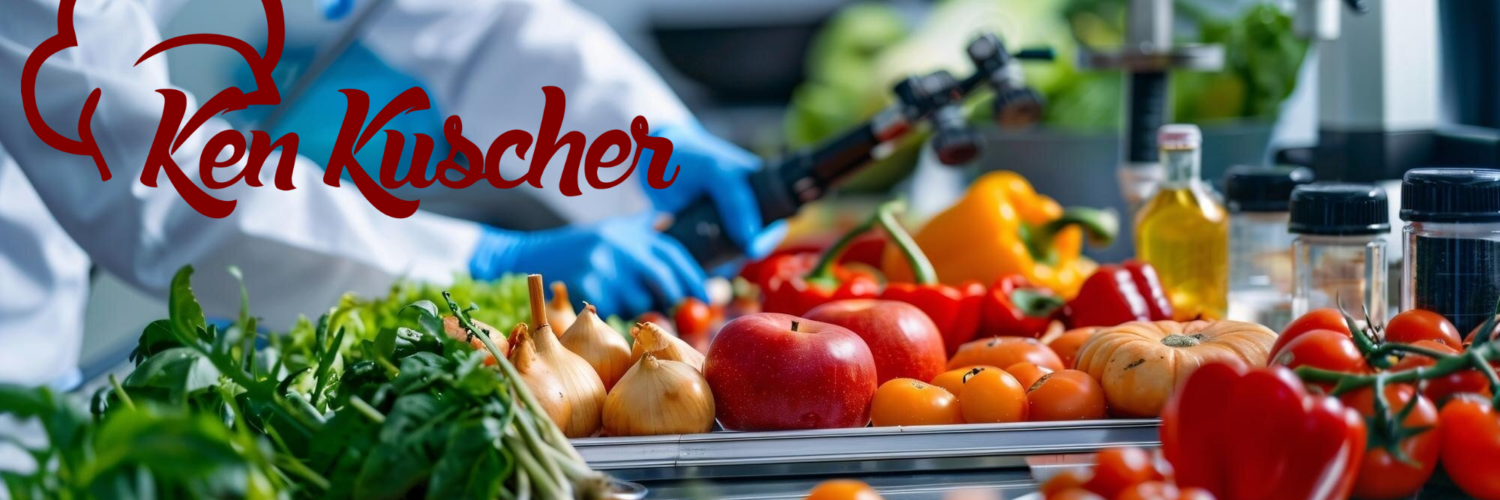As foodborne illness litigation grows increasingly complex driven by evolving regulations, heightened public awareness, and greater scrutiny from courts the demand for qualified professionals with deep technical and legal insight has never been higher. Attorneys and insurers now regularly turn to experts not just for testimony, but for strategic guidance throughout the litigation process.
In cases arising from contamination, mislabeling, or restaurant-level failures, specialists such as a florida food expert witness or restaurant expert witness bring invaluable clarity. These professionals help the court navigate regulatory obligations, assess operational practices, and interpret technical data that may otherwise be misunderstood or overlooked. Their contributions often shape case outcomes, especially when liability and causation hinge on detailed, scientifically grounded evaluations.
Legal professionals and businesses alike benefit from engaging a trusted food safety expert who understands the intersecting pressures of compliance, operations, and legal accountability. By bridging the gap between industry practice and legal expectation, these experts support more informed decisions, reduce litigation risk, and promote safer food systems for everyone involved.
Legal Context: Why Food Safety Expertise Matters
The Federal Standard for Evidence
At the core of any admissible expert testimony in federal court lies Federal Rule of Evidence 702, which governs the qualifications and reliability standards for expert witnesses. This rule requires that expert testimony be grounded in sufficient facts or data, based on reliable principles and methods, and applied accurately to the facts of the case. In foodborne illness litigation, this standard is especially critical given the technical nature of the evidence involved.
Expert witnesses in this field are tasked with interpreting a broad spectrum of scientific data including microbial lab results, epidemiological trends, temperature control records, and safety audit findings. Whether analyzing the presence of Listeria monocytogenes in a production facility or evaluating a company’s HACCP compliance, their role is to translate complex science into legally relevant conclusions.
In contamination cases or disputes involving regulatory non-compliance, the admissibility and persuasive power of expert testimony often determine the trajectory of the case. An expert who fails to meet the evidentiary threshold under Rule 702 risks being excluded, which can severely weaken the party’s legal position. Thus, choosing a witness with both academic rigor and litigation readiness is essential for courtroom success.
The Complexity of Food Safety Regulation
Modern food safety litigation operates within a dense web of overlapping federal, state, and local regulations. Agencies such as the U.S. Food and Drug Administration (FDA), the U.S. Department of Agriculture (USDA), and municipal health departments enforce a multitude of rules governing food production, labeling, storage, and distribution. Each carries its own set of protocols, reporting obligations, and enforcement mechanisms.
Litigants often face the challenge of demonstrating how a company either complied with or violated these requirements, an endeavor that demands not just legal interpretation but also operational insight. This is where expert witnesses provide indispensable clarity. Those with a background in regulatory compliance can pinpoint which practices met federal mandates, such as those set forth in the Food Safety Modernization Act (FSMA), and which fell short of expectations.
For example, an expert might evaluate whether a facility implemented appropriate preventive controls, followed proper labeling protocols for allergens, or maintained sanitation standards aligned with local health codes. Their analysis helps determine whether a deviation from regulation constituted negligence or was within the bounds of industry norms.
By bridging the gap between regulatory complexity and legal argumentation, expert witnesses ensure that courts make informed decisions rooted in both law and science. Their testimony often serves as the linchpin for proving liability, causation, or defense in food safety cases.

What Roles Do Food Safety Expert Witnesses Fulfill?
Evaluating Root Cause and Compliance
One of the most critical functions of a food safety expert witness is conducting root cause analysis in contamination events. When a foodborne illness claim arises, it’s not enough to confirm the presence of a pathogen; the legal team must establish how, when, and where contamination likely occurred. This requires a forensic examination of supply chain documentation, vendor sourcing practices, temperature monitoring records, and cleaning schedules.
Experts meticulously review whether safety controls were in place and functioning as intended. They analyze whether the business followed industry benchmarks such as HACCP protocols, complied with FSMA preventive controls, and adhered to local health department requirements. By comparing operational procedures against recognized standards, they determine if a deviation contributed to the incident and whether it constituted a breach of duty or an unforeseeable anomaly.
This type of analysis is crucial not only for proving or disproving negligence but also for guiding corrective actions that may protect against future liability.
Drafting Expert Reports and Testimony
A cornerstone of an expert witness’s legal contribution is the preparation of formal reports that articulate their findings, methodologies, and conclusions. These documents serve as a bridge between technical data and legal argument translating complex scientific and operational insights into formats that judges, jurors, and attorneys can understand and act upon.
These expert reports often include visual aids such as flow diagrams, microbial timelines, and sanitation checklists that help illustrate key points. Clarity, structure, and objectivity are paramount, as these reports may be heavily scrutinized during litigation and subject to opposing expert critique.
In many cases, the expert must also deliver oral testimony either during depositions or at trial. This demands not just subject matter expertise but also poise, communication skills, and the ability to explain scientific reasoning under cross-examination. How well an expert articulates nuanced findings can greatly influence credibility and ultimately, case outcomes.
Supporting Legal Strategy Pre-Litigation
Proactive law firms are increasingly engaging food safety experts at the pre-litigation stage not just once proceedings are underway. Early expert input can offer a strategic advantage by helping attorneys understand the technical strengths and weaknesses of a potential claim. This can influence whether to pursue litigation, seek an early settlement, or attempt resolution through regulatory channels.
During regulatory investigations, a food safety expert can also assist clients in responding to health department inquiries, implementing corrective measures, or documenting compliance initiatives. This forward-thinking approach not only strengthens the legal position but may also help businesses avoid litigation altogether by demonstrating a good-faith effort to meet safety standards.
An impartial, well-supported expert opinion often de-escalates disputes, fosters negotiation, and signals to regulators or opposing counsel that the case is being handled with diligence and scientific rigor.
Why the Role Has Grown in Importance
High-Profile Contamination Events
Foodborne illness outbreaks linked to E. coli, Salmonella, or Listeria frequently make national headlines not only because of the immediate health risks, but also due to the far-reaching legal and regulatory consequences that follow. These high-profile cases often involve hundreds of affected individuals, massive product recalls, and scrutiny from multiple agencies.
In such litigation, expert testimony becomes a powerful tool for exposing systemic failures. For example, the landmark 1993 Jack in the Box E. coli outbreakwhich led to over 700 illnesses and four deathsultimately catalyzed significant reforms in federal meat inspection and ground beef cooking standards. Expert witnesses were central to uncovering how undercooked patties and inadequate pathogen controls contributed to the outbreak.
Today, in similarly prominent cases, experts are called upon to investigate pathogen spread, trace cross-contamination routes, and evaluate whether preventive measures were in place. Their findings not only inform court decisions but can also trigger widespread industry change and set new safety precedents.
Increased Regulatory Enforcement
With the enactment of the Food Safety Modernization Act (FSMA), the FDA shifted its focus from reacting to foodborne illness outbreaks to proactively preventing them. This legislative overhaul granted the agency greater authority over inspections, recalls, and compliance enforcement. Central to FSMA is the requirement for companies to implement Hazard Analysis and Risk-Based Preventive Controls (HARPC), a proactive system for identifying and mitigating potential risks throughout the supply chain.
Compliance with FSMA is no longer optional for businesses involved in the manufacture, processing, or distribution of food. In litigation, food safety expert witnesses are often tasked with evaluating whether the defendant followed these updated mandates. Their analysis might include reviewing food safety plans, supplier verification activities, and environmental monitoring programs to determine if the company’s risk mitigation efforts were sufficient.
Failure to meet FSMA standards can result in not only regulatory penalties but also heightened liability in civil litigation. Expert testimony provides the evidence base courts need to assess whether a business operated within the bounds of evolving legal expectations.
Economic and Legal Consequences
Contamination-related litigation carries substantial financial stakes. Class action suits, personal injury claims, and wrongful death cases can lead to multimillion-dollar settlements, regulatory fines, and irreversible reputational harm. In many cases, the fallout extends beyond immediate financial loss to include brand erosion, disrupted supply chains, and long-term declines in consumer trust.
Expert witnesses are central to determining the legal and economic liability associated with these claims. Whether evaluating improper food handling procedures, breakdowns in supplier verification, or labeling errors that caused allergen exposure, experts offer scientifically supported opinions that help courts assign responsibility. Their findings often serve as the factual foundation for determining whether the defendant exercised reasonable care or whether gross negligence or willful misconduct occurred.
By anchoring financial and legal consequences to objective evaluations, expert witnesses help ensure that justice is based not just on speculation or emotion, but on sound scientific and operational analysis.
Core Qualifications of Food Safety Expert Witnesses
Academic and Professional Credentials
The foundation of a credible food safety expert witness lies in their academic training and professional certifications. Most qualified experts hold advanced degrees in disciplines directly relevant to foodborne illness litigation, such as food science, microbiology, public health, or environmental health sciences. These degrees provide the theoretical framework needed to understand pathogen behavior, contamination mechanisms, and the scientific standards behind safety protocols.
Certifications further distinguish these professionals and reinforce their authority in legal proceedings. Credentials such as HACCP Manager, ServSafe Food Protection Manager, or Certified Professional – Food Safety (CP-FS) demonstrate not only subject matter expertise but also a commitment to current best practices and continuing education. These qualifications help satisfy the standards of Federal Rule of Evidence 702, which demands that expert witnesses be qualified by “knowledge, skill, experience, training, or education” and use reliable methods that are relevant to the facts of the case.
Possessing these credentials not only boosts an expert’s admissibility in court, but also enhances their persuasiveness with jurors and judges who rely on expert input to make informed decisions.
Real-World Industry Experience
While academic knowledge is essential, real-world experience gives expert witnesses the practical insight needed to evaluate whether industry practices align with regulatory standards. Experts who have worked in food production facilities, led food safety audits, participated in regulatory inspections, or managed quality assurance programs bring invaluable operational context to their testimony.
Familiarity with commercial kitchen operations, supply chain logistics, labeling regulations, and sanitation controls allows experts to assess whether standard operating procedures were followed or if preventable lapses occurred. Their ability to interpret vendor documentation, employee training records, and inspection reports is often critical to establishing liability or refuting claims.
Moreover, this hands-on experience strengthens an expert’s credibility when discussing practical realities such as the feasibility of certain protocols, the impact of production pressures, or the limitations of specific technologies making their testimony more relatable and persuasive to a non-specialist audience.
Communication and Ethical Integrity
An expert’s ability to translate complex technical content into accessible language is often as important as the science itself. In foodborne illness litigation, judges and jurors must understand topics like microbial risk, cross-contamination, HACCP systems, or allergen control, none of which may be familiar. A skilled expert simplifies these concepts without oversimplifying the facts, ensuring their analysis is both understandable and authoritative.
Equally crucial is the expert’s ethical integrity. The court values neutrality and consistency, expecting expert witnesses to base their conclusions solely on scientific evidence and sound methodology not advocacy. An expert who appears biased or stretches data to favor one side risks undermining the entire case.
Ethical experts acknowledge data limitations, remain consistent in depositions and trials, and avoid presenting conclusions that exceed what the evidence can support. Their role is to inform, not to persuade and this objectivity strengthens their standing with both the court and the opposing party.
Common Case Types Requiring Expert Testimony
Foodborne Illness Litigation
Legal claims stemming from exposure to foodborne pathogens such as Salmonella, Listeria, and E. coli are among the most scientifically complex in the field of product liability. Successfully litigating these cases requires more than anecdotal evidence; it hinges on the ability to establish a causal connection between the contaminated food product and the illness suffered by the consumer.
Expert witnesses play a pivotal role in bridging that gap. Drawing on backgrounds in microbiology, epidemiology, and food safety systems, these professionals analyze clinical data, lab results, traceback investigations, and pathogen genome sequencing to determine likely contamination sources. Their evaluation helps clarify whether a particular food item is the probable cause of illness and whether prevention protocols such as temperature monitoring, cross-contamination controls, or proper cooking procedures were implemented as required.
Courts rely heavily on this type of expert insight to assess liability and apportion responsibility between manufacturers, distributors, and foodservice operators.
Labeling and Allergen Disputes
Claims involving undeclared allergens, mislabeled ingredients, or inaccurate nutrition information can lead to serious health consequences and significant financial exposure for food companies. These cases often arise from seemingly minor oversights such as packaging errors, undocumented recipe changes, or miscommunication between co-packers and suppliers but their legal ramifications can be severe.
Expert witnesses with deep knowledge of FDA labeling regulations, Food Allergen Labeling and Consumer Protection Act (FALCPA) requirements, and FSMA compliance provide the clarity needed to determine whether a labeling violation occurred. They examine product packaging, batch documentation, and allergen control protocols to identify potential failures in quality assurance or regulatory compliance.
Their findings often form the basis for evaluating negligence, strict liability, or consumer deception claims, especially when the affected product causes anaphylaxis or other serious reactions. Their testimony may also support recalls, regulatory investigations, and post-incident corrective actions.
Restaurant and Retail Investigations
Legal disputes involving restaurants, cafeterias, and retail food outlets commonly revolve around allegations of unsanitary conditions, improper food handling, or employee negligence. These claims frequently surface following public health complaints, failed inspections, or outbreaks traced to specific food establishments.
In such cases, experts with a background in foodservice operations are called upon to evaluate HACCP systems, cleaning protocols, employee hygiene standards, and managerial oversight. A thorough inspection may reveal whether the establishment adhered to local health codes and whether staff were adequately trained in safe food handling practices.
When violations lead to temporary closures, health department penalties, or widespread illness, the testimony of a qualified expert witness is critical in determining the extent of operational failures. Their analysis can support claims of negligence or, conversely, refute allegations by showing compliance with accepted industry standards.

Trends Driving Expert Engagement in Litigation
Consumer Awareness and Class Actions
With rising public awareness of food safety, consumers are more inclined to pursue legal remedies when harmed. This has led to an increase in class action lawsuits, where expert analysis is critical in identifying systemic failures across products or chains.
Insurance and Risk Management
Insurers and underwriters increasingly consult expert witnesses during claim assessments to determine liability and reduce exposure. Expert input supports informed underwriting practices and loss mitigation strategies.
Regulatory Proactivity
Government agencies are also turning to external experts during investigations or hearings. These experts provide technical evaluations that support agency recommendations, enforcement actions, or policy revisions.
Selecting the Right Food Safety Expert Witness
Evaluating Credentials and Experience
Legal professionals should assess a prospective expert’s academic background, certification status, and litigation history. A seasoned expert with courtroom experience is better prepared to withstand cross-examination and maintain composure under scrutiny.
Defining Scope and Objectives
A well-structured engagement outlines specific tasks such as document review, site inspections, and deposition support. Clear communication ensures the expert provides actionable insight aligned with case strategy.
Ensuring Impartiality
To maintain integrity, the expert must remain neutral even when retained by a particular party. Courts tend to favor experts whose conclusions reflect objective analysis rather than advocacy.
When Legal Teams Should Engage an Expert
- Early risk assessment: Pre-litigation consultation helps identify strengths and weaknesses in a potential case.
- Discovery support: Expert evaluations guide attorneys in requesting relevant documents or data during discovery.
- Trial readiness: Compelling testimony often becomes a cornerstone of a successful litigation strategy.
How Ken Kuscher Adds Value in Food Safety Litigation
Ken Kuscher offers broad experience and credentialed expertise relevant to a wide range of food safety litigation scenarios. As a seasoned food safety expert and food service expert witness, Mr. Kuscher provides testimony grounded in both regulatory knowledge and practical food handling experience.
His expertise supports attorneys, regulators, and insurance professionals engaged in disputes involving restaurants, retailers, and manufacturers. Those requiring a restaurant expert witness or florida food expert witness will find that his credentials meet the rigorous standards of federal and state courts.
Additionally, Mr. Kuscher’s platform provides access to training resources for those seeking florida food handler certificates and food handler certificates florida. With his competitive florida food handler certificates best price offering, organizations can ensure employee compliance without excessive cost. Individuals in need of a florida food handlers card can also find affordable, certified options.
Reinforcing Public Health and Legal Accountability
The increasing demand for qualified food safety expert witnesses reflects a broader societal commitment to food safety and public health. Their contributions shape litigation outcomes, influence regulatory frameworks, and promote higher industry standards.
Legal professionals, regulatory bodies, and business owners are encouraged to explore the services offered by seasoned experts like Ken Kuscher. Whether supporting litigation or enhancing compliance readiness, expert testimony grounded in science and experience remains a vital asset in today’s legal environment.





